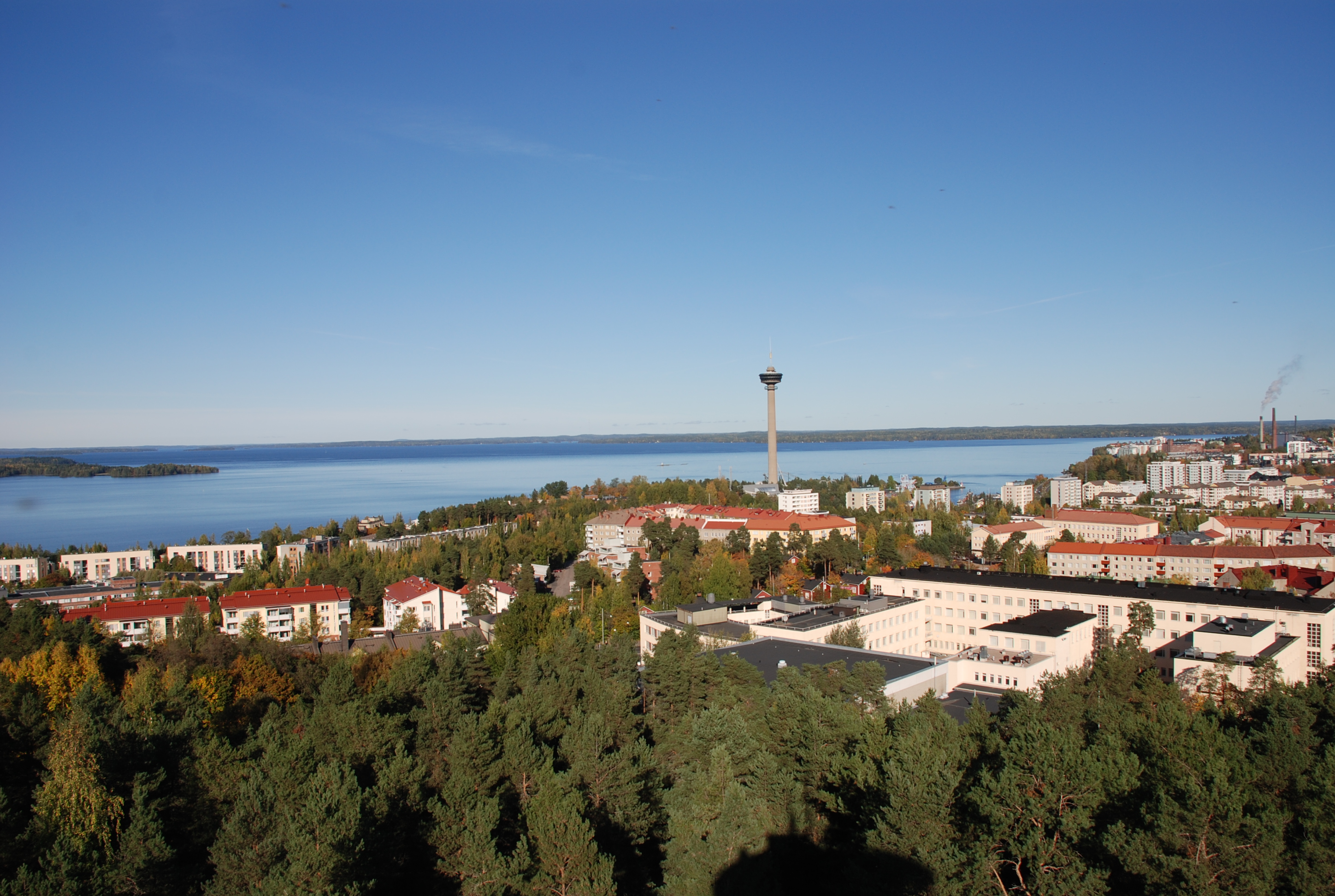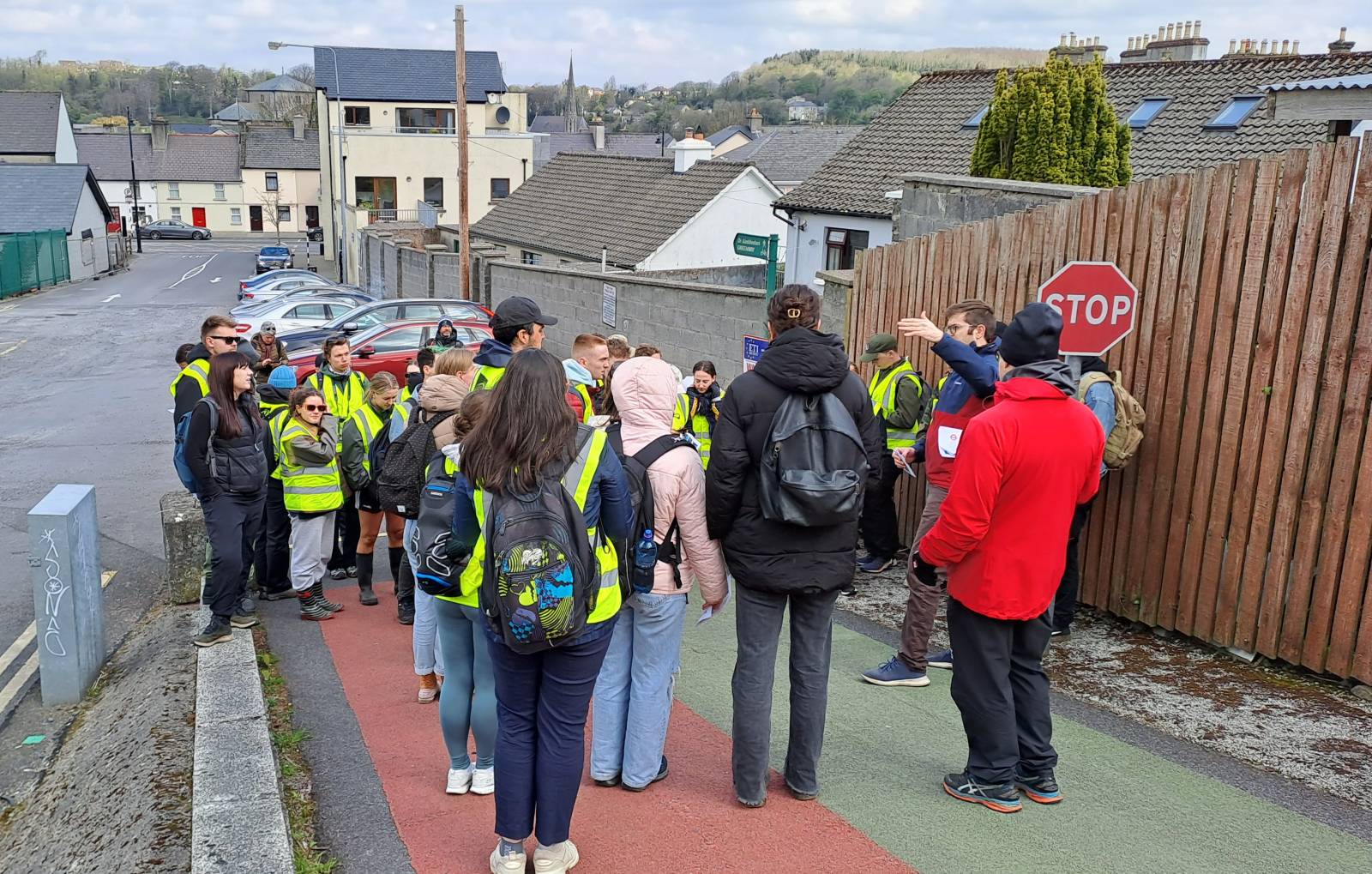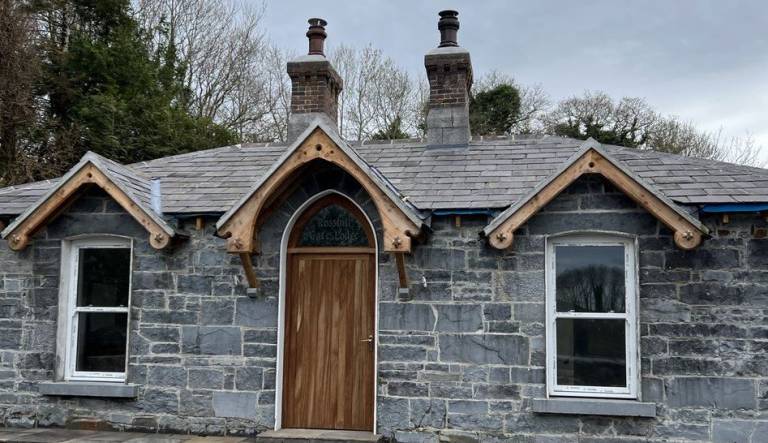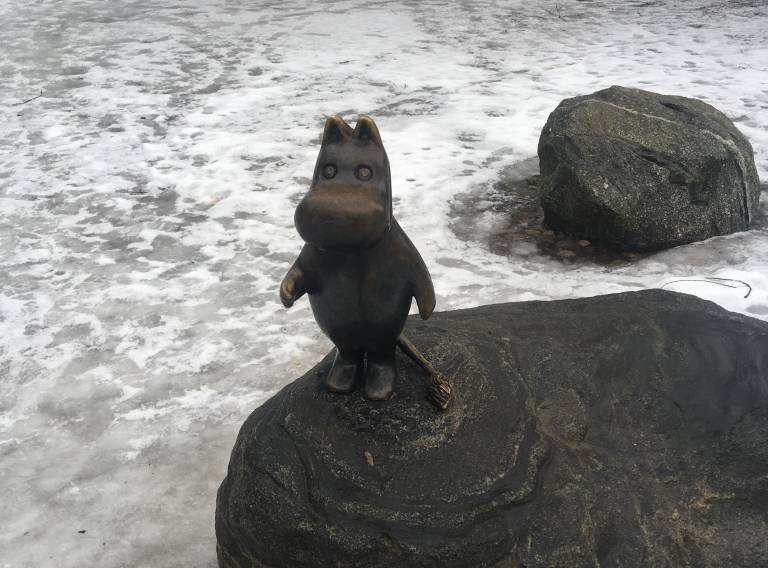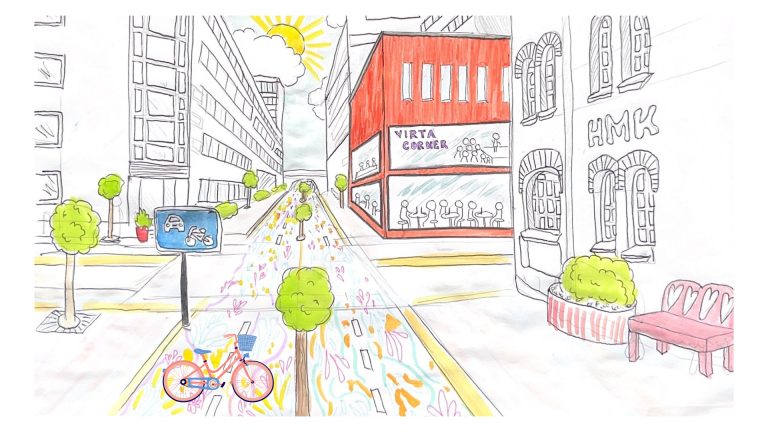Every morning, buses took all of us to places that were designed in the schedule to observe, listen, and discuss Irish nature, geology, hydrology, history, and human activities. We usually went back to our stay in the Peterburg Outdoor Education Centre in the late evenings, and after dinners there was time for presentations by students from the Tampere University and Utrecht University. My days were filled with lots of information, mostly from interactions with experts and other students, and these were my main learning sources during the field trip.
Interactions with experts
We had opportunities to meet many people working in different fields such as farming, transport, volunteering in protecting sand dunes and growing native species, geology, and hydrology. They joined us at the stops and discussed the relevant topics connected to the places. It was so nice to hear about their motivation for the jobs and insights about the challenges they were having. From their sharings, we did not only learn about the topics but also the culture and norms in the area.
I was the most impressed by Kieran Ryan in the town of Westport talking about the 15-minute city. He was proposing a plan to turn some driving lanes into cycling lanes. Currently, there is a lack of cycling lanes in the town center, which prevents cyclists from accessing the town center. However, the project encounters disagreements from people in the area because they are so used to car culture. Because of this, the reduction of driving lanes triggers nervousness about losing benefits, as well as worries about changes. The abolishment of town councils in Ireland has also made dialogue between the locals and planning authorities more difficult and inefficient, as county councils have to spread their focus over a large area. Being able to witness the problem and hear about its interactions with the complexity of local culture, social features, and people’s mindset is what I found most interesting from the meetings with local experts.
During these meetings, I found that as a student I was able to learn more from the field trip by having prior knowledge on some topics and reading the pre-field trip materials carefully. Without any background on the topic, it is difficult to grasp the big picture of what the experts talk about. I discovered that if I didn’t have any prior knowledge about the topics, note-taking was less useful unless I did some further investigation into the topics covered in the field. Therefore, it is better to have some ideas on the topics before going on the trip to have more effective field learning.
Interactions with friends
Interaction with friends could happen at any time, as we stayed together most of the time. On this field trip, there were 40 students from three universities: Dublin City University, Tampere University, and Utrecht University. This field trip provided me with lots of time to get to know more about students in the same class and Irish and Dutch students, who have very different backgrounds.
Together, we did group activities, such as soil, water, and kick samplings. I was amazed by how much my fellow students from DCU knew about soil, species, plants, and nature in general. Their program focuses on the natural environmental aspect of sustainability, and some of them showed that it was really what they care about and like to explore themselves, also beyond the scope of the university program. I felt very excited listening to them sharing what they know about the topics that are important and impactful to them. These kinds of conversations, which were sometimes about random things such as dragonflies or bats, really brought me some joy and positive energy.
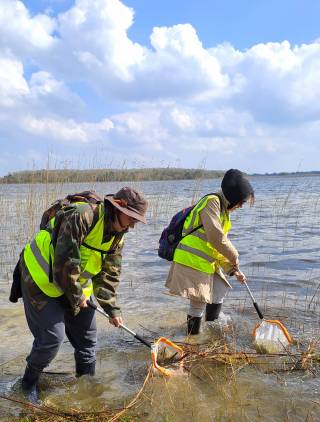
We also spent the last day of the hackathon working on solutions for problems that we identified from the previous days. The group work in the hackathon was very different from the normal group work I have done at the university. I am used to working in a small group of 3-4 people without being rushed. In the hackathon, there were six people in a group, and we had to come up with solutions and presentations in a short time. Everyone tried their best to share their ideas as quickly as possible. In the end, we had more ideas than we could handle, and sometimes the conversations led us far away from the scope of the problem that we actually wanted to solve. After that, it took time for us to redefine the problem and find suitable solutions for it. After this hackathon, I realized the importance of group working skills that we learned at the university, such as dividing roles in the group (process host, documenter, communicator, translator) to facilitate conversations, listening to what other people say (storytelling), and giving a presentation (pitching). When time is restricted, effective communication and organizing ideas increases the chances of producing quality outcomes without frustrations and conflicts.
Besides studying, by talking with other students, I came to know little things about them such as details about their studies, their life, and hobbies. I think interactions with friends made the trip much more fun and memorable. If I join another field trip in the future, I will try to open up more to talk with people, especially those who are from other universities, to have more fun moments and experiences. Personally, it sometimes takes time and some level of effort for me to feel totally comfortable being around people, and to get ready for listening and sharing. In conclusion, I think that a field trip is one of the best way to learn through interaction with others. And to have a good field trip experience, here is something that I learned from my experience and hope could be beneficial for you and others as well:
- Read the pre-field trip materials beforehand/Research the field trip locations!
- Be ready for lots of communications!
- Improve group work skills and presentation skills!
- Have fun!
Linh Nguyen
Linh participated in the Erasmus+ field trip to the West of Ireland in April 2023. The trip was organized by Dublin City University in collaboration with Tampere University and Utrecht University.

